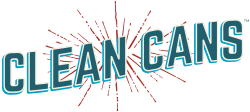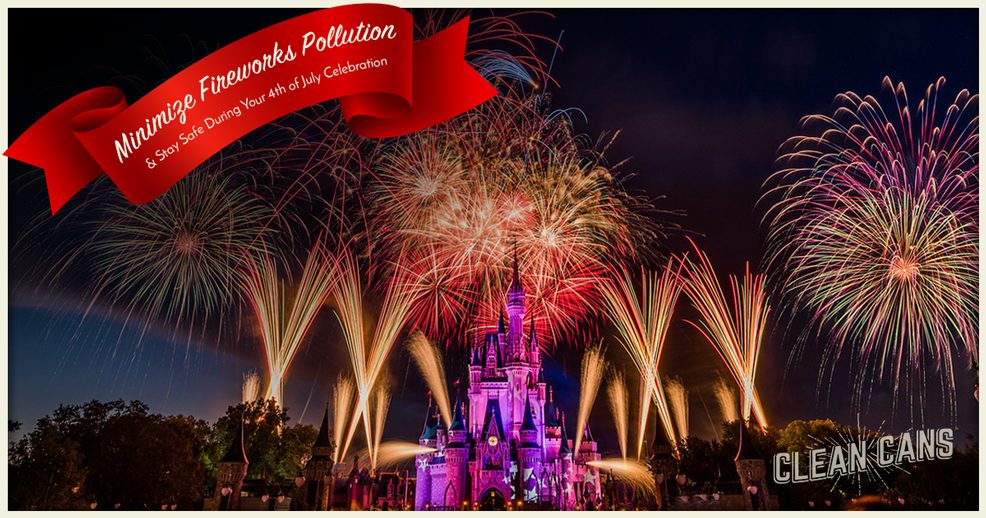Fireworks are an integral part of 4th of July celebrations (and usually the most anticipated part of the holiday). Independence Day festivities just wouldn’t be the same without them. The Clean Cans team is all about a great big fireworks display, but we also want to make sure you and your loved ones enjoy July 4th responsibly by staying safe and reducing fireworks pollution. Setting off fireworks is lots of fun, but it also comes with some potential negative environmental effects that are often overlooked.
Heavy metals like barium, aluminum, and lead give fireworks their brilliant colors. But along with the dazzling array of colors come some negative environmental and health effects. You don’t have to skip the fireworks show entirely, but make sure you understand the environmental effects of setting off fireworks and how to protect yourself and Mother Nature.
How Does Fireworks Pollution Affect People?
If you’ve been to Walt Disney World, you’re probably familiar with the smoke, dust, and particles that float around immediately after a fireworks show. But did you know tiny metal particles can end up floating around for days afterward?
Fireworks cause air pollution that can exacerbate asthma or upper respiratory problems for some people. Harmful metals can also contaminate soil and water systems that have negative long-lasting effects. These contaminants can enter water sources when fireworks debris gets washed down storm drains or when it rains heavily during or after using them.
Currently, there are limits on carbon emissions for cars, factories, and other pollution but fireworks pollution remains largely unchecked. That’s why it’s so important to be educated before using them. Here are some tips to help you minimize pollution and use fireworks responsibly.
Top Tips to Minimize Fireworks Pollution
If you’re planning on holding your own 4th of July Fireworks Spectacular, here are some tips to help minimize fireworks pollution..
Clean Up Afterward – Don’t just leave your fireworks debris in the street. Make sure it’s safe to approach the area, then sweep up any leftover material and place it in a trash can. Remember to never hose fireworks debris down storm drains! The polluted wastewater can enter streams and affect the environment and wildlife. It’s also illegal, and can come with a hefty fine.
Only Use Fireworks in Fair Weather – To prevent fireworks from soaking into the soil, don’t set them off if it has rained recently and the ground is wet. You also want to refrain from setting off fireworks in extremely dry weather, since it could start a brush fire.
Use Green Transportation – If you don’t plan on using fireworks at home, bike, walk, or take public transportation to the fireworks show. Not only will it help you get out of traffic quicker, you can help minimize the holiday’s carbon footprint.
Safety Tips For Celebrating July 4th
Only Use Fireworks Outdoors – This may seem like it goes without saying, but never ever set off fireworks indoors – even if they’re just sparklers. The fire risk just isn’t worth it.
Light Fireworks Away From Dry Grass – Choose a flat location that isn’t easily combustible.
Take Some Safety Precautions – Have a fire extinguisher and water source nearby in case of an accident.
Keep Spectators at a Safe Distance – Have your viewers step back to a safe viewing distance. Your fireworks packaging should recommend a specific distance, depending on the type of firework.
Soak the Duds. If a firework doesn’t work after it’s lit, soak it in a bucket of water before disposing of it.
Once you’re finished with your fireworks for the evening, make sure you properly dispose of the debris in your trash can. Don’t worry about all those ashes, Clean Cans will take care of it! Even when it comes to soot and ash, Clean Cans gets your trash cans sparkling again.
Most importantly, Happy Independence Day from the Clean Cans Team! Enjoy the festivities responsibly!

